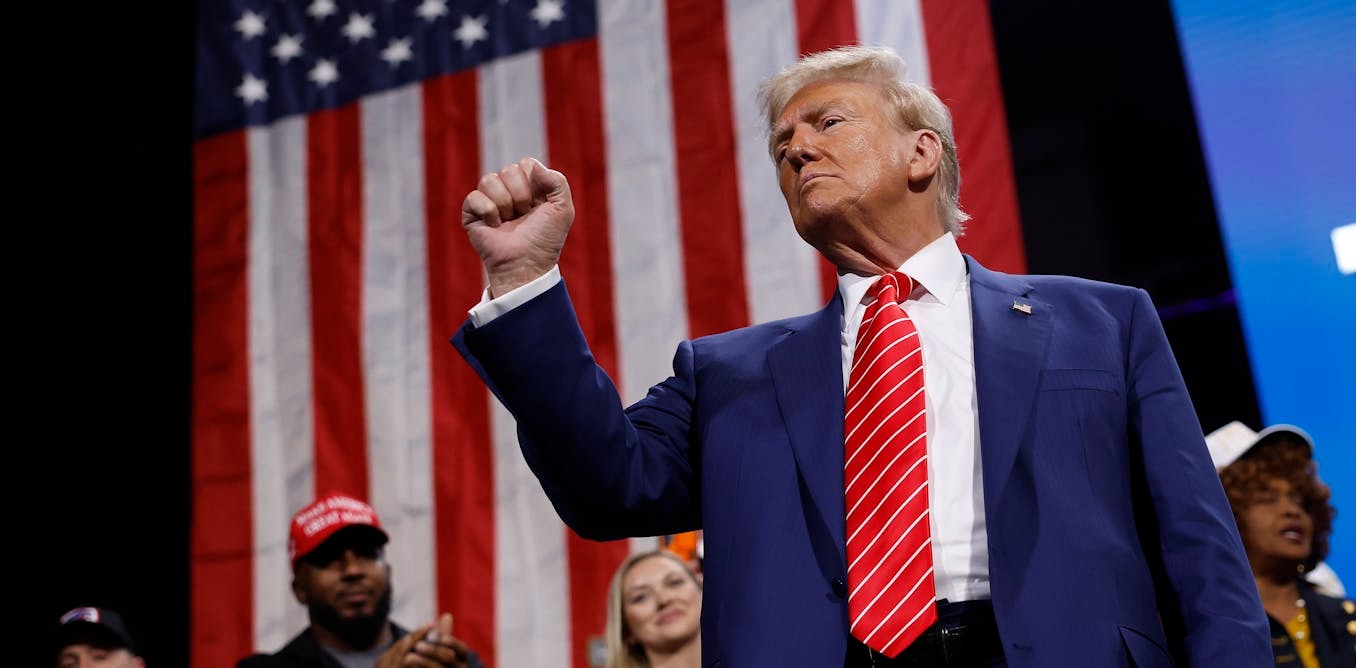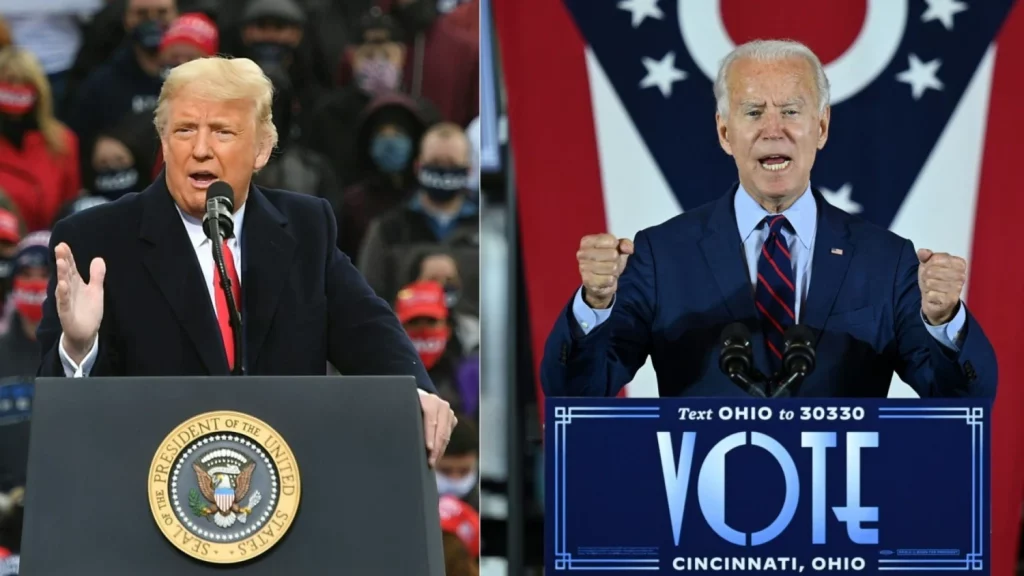
As the political landscape continues to shift amidst ongoing debates, scandals, and triumphs within the Republican Party, a significant question looms over the horizon: Donald Trump for president in 2028. The former president’s recent statements hint that the stage is being set for a dramatic return to the White House, but with potential successors like Vice President JD Vance emerging, the dynamics of the party are more complex than ever.
The prospect of Trump’s candidacy raises an array of critical considerations involving leadership styles, electoral strategies, and the potential implications for the Republican Party’s future. With Trump’s unique blend of charisma and controversy, the idea of him campaigning again creates excitement among his base while stirring apprehension within the opposition. This article explores the evolving narrative and its significance as we approach the upcoming elections.
The Role of Vice President JD Vance in Trump’s Potential Campaign
In a recent interview, President Trump expressed that it’s too early to declare whether he sees Vice President JD Vance as his successor for the 2028 election. While acknowledging Vance’s capabilities, Trump emphasized that many other candidates exist within the party who could also take the mantle.
Trump’s Influence on Vance’s Political Trajectory
Trump’s relationship with Vance is layered and multifaceted. Initially selected as Trump’s running mate due to his alignment with the former president’s populist agenda, Vance represents the new generation of Republican leadership. His ascent to the vice presidency can be viewed as both a strategic move and an endorsement of the core values that Trump champions.
Vance’s trajectory through the political landscape reflects a shift in the GOP towards younger leaders, which can invigorate the party’s dynamics. While Trump remains a substantial figure, Vance must establish his own identity within the party and appeal to a broader voter base.
Navigating the Challenge of Being the VP
As the third-youngest vice president in U.S. history, JD Vance faces significant expectations. His first foreign trip, marked by attendance at the artificial intelligence summit in France, showcases his diplomatic duties and responsibilities as vice president. However, navigating these challenges requires him to balance being a loyal subordinate to Trump while not appearing overly reliant on the former president’s shadow.
The next few years will be crucial for Vance, as he seeks to carve out his niche within the party. Without a clear endorsement from Trump, he risks being overshadowed by the weight of Trump’s legacy while simultaneously leveraging the momentum of their partnership.
Insights into Vance’s Leadership Style
Vance’s background as a bestselling author and venture capitalist has equipped him with a unique perspective on both policy and public relations. His memoir “Hillbilly Elegy” captures the struggles of rural America, an audience that resonates well with many GOP voters. As vice president, Vance must expand upon this foundation by addressing issues that impact various demographics while maintaining the party’s core principles.
The challenge lies in demonstrating his independence from Trump while still embodying the essence of Trumpism. Vance’s ability to articulate his vision for America’s future will determine his viability as a candidate in 2028, should he choose to pursue that path.

The Dynamics of Trump’s Potential Third Term
While speculation about a possible run for a third term may seem far-fetched given constitutional constraints, Trump’s musings on altering the Constitution to extend his presidency contribute to the ongoing fascination surrounding his political ambitions.
The Appeal of Trump’s Leadership Style
Trump’s leadership style is characterized by its unorthodox approach, appealing directly to the emotions and sentiments of his supporters. His ability to connect with voters on a personal level is one of his most potent weapons. For many Americans, particularly those feeling disenfranchised or overlooked, Trump’s candidacy embodies hope for change.
His brand of populism resonates deeply with a segment of the population that feels alienated by traditional politics. Should he decide to run in 2028, Trump’s strategy will likely involve doubling down on these themes, rallying grassroots support while simultaneously engaging in media battles against establishment figures.
The Risks of the Lame Duck Status
Trump’s awareness of a “lame duck” status presents another layer of complexity in his political calculus. By avoiding an early endorsement of Vance, Trump might be seeking to maintain his influence and power within the party. The fear of becoming irrelevant post-presidency drives politicians to strategize around their legacies and future aspirations.
For Trump, the notion of remaining a dominant figure in the GOP includes cultivating relationships with prospective candidates. By keeping his options open, he retains leverage while allowing potential successors like Vance to prove themselves in the eyes of the electorate.
Political Calculations and Public Perception
While Trump frequently discusses changing the Constitution, much of this commentary is presumably meant to stimulate discourse rather than signal actionable intentions. His remarks prompt conversations about the limits of presidential authority and encourage loyalists to express their fears of losing a powerful leader.
Public perception plays a vital role in shaping Trump’s future endeavors. Supporters remain fiercely loyal, yet dissent within the party exists, warranting a careful balancing act moving forward. Whether Trump decides to campaign for himself or endorse a successor, he understands that the Republican Party’s direction hinges on releasing a unified message that resonates with voters.

Lessons from Past Presidential Successions
Historically, presidential successions have been fraught with complexities that shape party dynamics. As such, understanding the lessons learned from past transitions offers valuable insights into what lies ahead for Trump and the GOP.
The Importance of Endorsements
Presidential endorsements often serve as pivotal moments in political campaigns, influencing voter perceptions and shaping the trajectory of challengers. In the case of President Obama and Vice President Biden, the absence of encouragement to run in 2016 led Biden to reconsider his political future. Ultimately, Biden’s decision to run in 2020 proved fortuitous as he secured the nomination and later the presidency.
Reflecting on these dynamics, Trump’s reluctance to endorse Vance signals a strategic hesitation. While he admires the young vice president’s capabilities, he appears uncertain about fully committing to Vance’s political ambitions. This uncertainty suggests that Trump may wish to explore other avenues before making any definitive decisions regarding succession.
Republican Party Identity and Continuity
The GOP’s identity is constantly evolving, often defined by the individuals who lead it. Trump’s influence reshaped the party’s platform, giving rise to a brand of nationalism that has become central to its message. However, as younger leaders like Vance emerge, they must navigate the waters of tradition versus innovation, seeking to strike a delicate balance between honoring past achievements and charting new paths forward.
Analyzing prior transitions, it’s apparent that successful successors effectively combine established party values with fresh perspectives. Vance’s challenge will be to embrace Trump’s legacy while presenting his own vision for the future, thereby ensuring continuity within the Republican Party.
The Role of Popularity and Charisma
Popularity and charisma play crucial roles in political success; a candidate’s ability to engage and inspire voters can significantly impact outcomes. Trump’s larger-than-life persona might cloud the judgment of potential successors, challenging them to differentiate themselves while benefiting from his popularity.
JD Vance and others in the GOP will face the task of winning over voters who gravitate towards charisma. Developing a relatable narrative that encapsulates their vision without overshadowing Trump’s allure will be critical for any prospective candidate hoping to ascend to higher office.
The Path Ahead for the GOP and Trump’s Legacy
As discussions about Donald Trump for president in 2028 continue to unfold, the implications for the GOP present both opportunities and challenges. Navigating the political landscape requires astute awareness, calculated strategies, and strong leadership to harness the energies of a passionate base.
Building a Cohesive Narrative
For the GOP, building a cohesive narrative that resonates with voters will be paramount. This encompasses embracing the lessons learned from Trump’s tenure while addressing emerging issues that define contemporary American society. Candidates must reconcile diverse voices within the party to foster unity without sacrificing their distinctive messages.
Vance, along with other potential candidates, will need to identify key issues that unite the Republican base. Addressing economic concerns, immigration reform, and healthcare will likely dominate discussions as they seek to position themselves favorably among constituents.
The Power of Grassroots Movements
Grassroots movements serve as the lifeblood of any political party, empowering citizens to mobilize and advocate for change. Trump’s initial rise was fueled by a groundswell of support from dedicated activists who believed in his vision. As the 2028 election cycle approaches, reinforcing connections with grassroots organizations will be essential for any candidate aspiring to carry the mantle of leadership.
Developing outreach initiatives that resonate with local communities can elevate candidates’ profiles. By listening to constituents’ concerns and crafting inclusive platforms, the GOP can galvanize support that extends beyond traditional party lines.
Engaging with the Youth Vote
Engaging younger voters will be critical for the GOP’s longevity and relevance. As demographics shift, attracting millennials and Gen Z voters requires innovative strategies that address their priorities. Issues like climate change, social justice, and economic opportunity are central to their concerns, compelling candidates to broaden their messaging accordingly.
Vance and others must demonstrate their commitment to understanding and addressing these pressing issues if they intend to capture the enthusiasm of young voters. Creating policies that reflect their values while retaining the party’s core ethos will help bridge generational divides and strengthen party foundations.
Conclusion
The prospect of Donald Trump for president in 2028 poses intriguing possibilities for the Republican Party. As the dust settles from tumultuous years of political upheaval, the groundwork for future leadership becomes increasingly nuanced.
Through examining Vice President JD Vance’s potential role and the dynamics of succession, we gain insight into the complex interplay between charisma, policy, and party identity. Whether Trump ultimately decides to run again or steps aside to empower a new generation of leaders, the coming years will undoubtedly reshape the contours of American politics.
Ultimately, the journey toward 2028 will require adaptability, engagement, and a willingness to confront both new challenges and the enduring legacy of Trump’s presidency. As the nation looks ahead, the quest for a coherent and resonant message within the Republican Party remains paramount, especially as they prepare for a competitive electoral landscape.